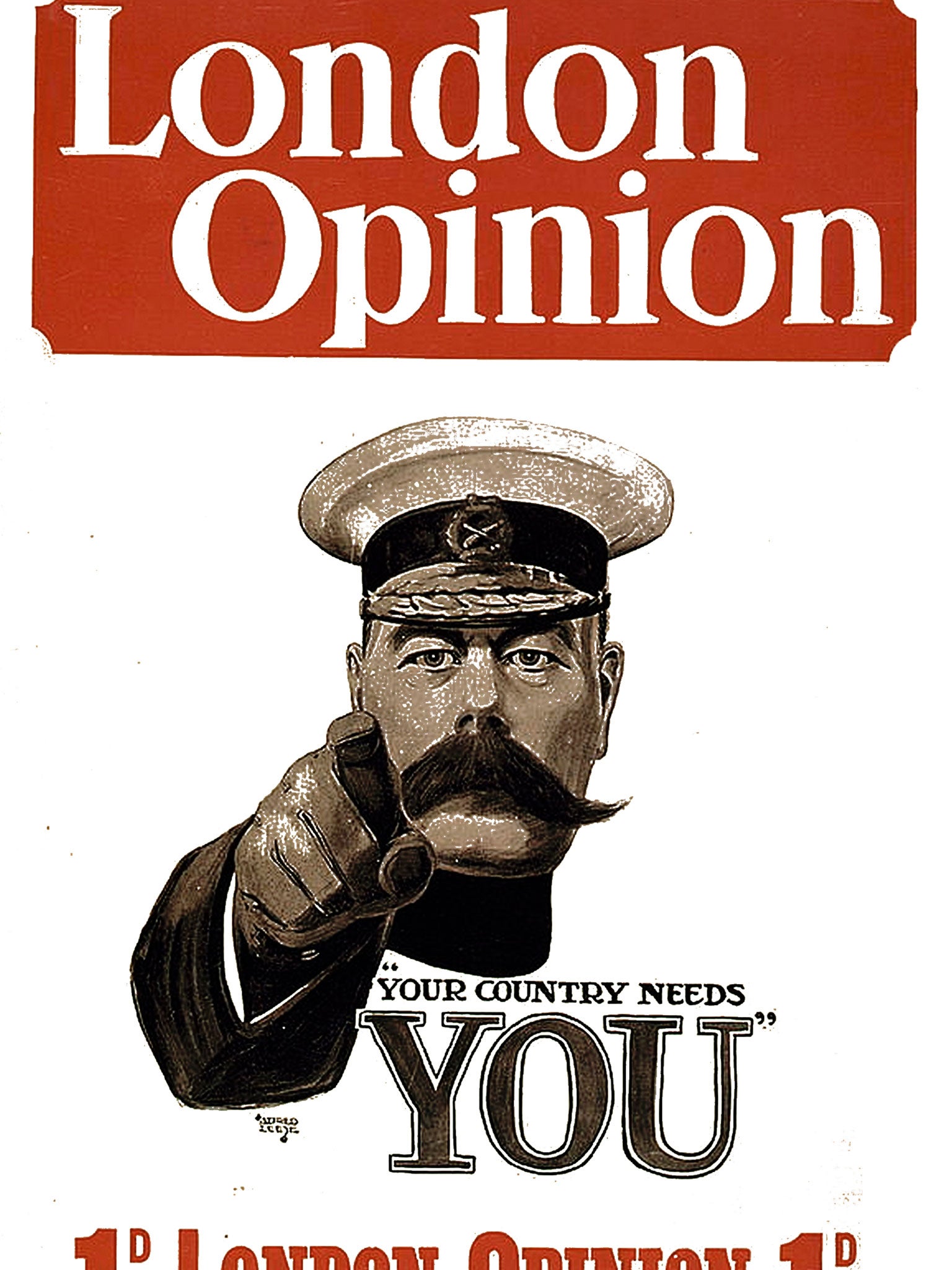'Your country needs you': The myth of the most iconic World War I emblem
The picture of Lord Kitchener has long been regarded as the poster that encouraged young men to join the army, but this may just be a popular myth

One of the most iconic images of the First World War may in fact have never become widely used until years after conflict ended.
The poster most commonly associated with inspiring young men to join the army featured an image of Lord Kitchener pointing at the audience.
But James Taylor, the author of Your Country Needs You, now believes the perception that the poster was created to encourage men to join the military is mistaken. “It’s widely believed to have been the most popular design of First World War, instrumental in recruiting millions of men. But the truth is: that simply wasn’t the case. It’s an urban myth,” he told the Telegraph.
In his book, Mr Taylor researched the history of recruitment posters by studying records of the Parliamentary Recruiting Committee, the body responsible for producing war time posters.
Whilst researching for the book, Mr Taylor traced the origins of the picture and found that it dated back to 5 September 1914, shortly after the war began. The image was used on the front cover of the popular magazine London Opinion alongside two promotions: “This paper insures you for £1,000” and “50 photographs of YOU for a shilling”.
The image had been designed by Alfred Leete, a graphic artist, who had manipulated a portrait of Kitchener to create the iconic 'your country needs you' pointing finger. The slogan was adapted from the official call to the military, which was: “Your King and Country Need You”.
A week later the same magazine offered readers the chance to buy postcards of the image for 1s. 4d for 100.
Mr Taylor has not been able to track down any surviving examples of the postcards in public or private collections and is now offering a £100 reward for anyone who can produce the first.
“There has been a mass, collective misrecollection" he explained. "The image’s influence now is absolutely out of all kilter with the reality of its initial impact. It has taken on a new kind of life. It is such a good image and saying that it was later seized upon. Many historians and books have used it and kept repeating how influential it was, that people have come to accept it.”
In his book, Mr Taylor shows how the Kitchener image did serve to inspire similar posters, including one produced by LO, with the word BRITONS, above the same picture of the Field Marshal pointing, with the words “wants YOU – Join Your Country’s Army!”, beneath, and the words ‘God Save The King’ printed along the bottom.
However, Mr Taylor said there was no evidence the poster was particularly popular with the public or a readily recognised design of the war, as some historians have claimed.
Instead, he found that the most widely circulated poster of the era did feature Kitchener, but without the pointing finger and accompanied by 30-word extract from a speech he had made.
Join our commenting forum
Join thought-provoking conversations, follow other Independent readers and see their replies
Comments
Bookmark popover
Removed from bookmarks